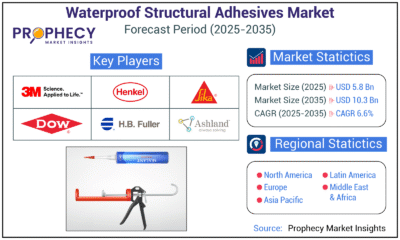Finance
Mastercard’s Open Banking Expansion Targets Long-Standing Financial Barriers

For decades, access to financial services has been heavily dictated by traditional credit systems, leaving millions of individuals and small businesses underserved. The inability to verify income, assess creditworthiness beyond credit scores, and prevent fraud in real time has contributed to systemic barriers in lending and financial inclusion.
Mastercard’s Start Path New Networks program, along with its broader Open Banking initiatives, is attempting to address these issues by empowering fintech startups to build solutions that leverage real-time financial data, AI, and open banking frameworks. With the latest Start Path cohort, Mastercard has brought in companies like FairPlay, Impactica, and Carrington Labs, which are developing tools aimed at making financial decision-making more transparent, accessible, and secure. These efforts are further reinforced by Mastercard’s ongoing Open Banking for Lending program and the newly announced Connect Plus, a data-consent command center designed to give consumers greater control over their financial data.
The Problems Mastercard and Startups Are Addressing
1. The Credit Invisibility Crisis
The U.S. credit system has historically excluded millions who lack traditional credit history. According to Mastercard’s August 2024 report, 19% of U.S. consumers fall outside traditional credit reporting systems, making it difficult to access loans, credit cards, and even rental agreements. This issue disproportionately affects gig workers, immigrants, and low-income households who may have stable financial behaviors but lack conventional credit profiles.
Carrington Labs is one of the new startups in the Start Path New Networks program working to tackle this issue. By using explainable AI for credit risk assessment, it enables lenders to evaluate creditworthiness beyond FICO scores, considering broader financial behavior. This aligns with Mastercard’s Cash Flow Analytics and Balance Analytics solutions, which allow lenders to assess cash flow trends from bank accounts instead of relying solely on outdated credit reporting models.
2. Income and Employment Verification Bottlenecks
Another major hurdle in lending is verifying income and employment, which often involves outdated, manual processes that delay loan approvals. Mastercard’s Open Banking for Lending initiative has expanded to include real-time payroll data aggregation via Argyle, allowing 95% of the U.S. workforce—especially gig workers and those with non-traditional employment—to prove their financial stability digitally.
Impactica, a startup in the new Start Path cohort, takes this a step further by streamlining public benefits enrollment. Many individuals who qualify for financial assistance struggle with complicated verification requirements, preventing them from accessing the benefits they need. By utilizing open banking and automated financial verification, Impactica aims to bridge the gap between government assistance and financial accessibility.
3. Algorithmic Bias in Lending Decisions
One of the most pressing concerns in financial technology is the risk of bias in AI-driven decision-making. While AI can streamline processes, poorly designed models can reinforce discriminatory lending practices, disproportionately affecting marginalized communities.
FairPlay, another member of the Start Path cohort, focuses on de-biasing AI models used in financial decision-making. By analyzing lending algorithms and identifying disparities, FairPlay’s technology helps lenders adjust their models in real-time to ensure compliance and fairness. This aligns with Mastercard’s broader goal of democratizing financial services, ensuring that AI is used to increase financial inclusion rather than exacerbate existing inequalities.
4. Data Control and Fraud Prevention
As more financial data is shared across platforms, data security and fraud prevention have become major concerns. Consumers are often required to share financial information with multiple third parties, raising questions about data ownership, security, and misuse.
Mastercard’s October 2024 announcement introduced Connect Plus, a centralized data-consent platform that gives consumers control over who accesses their financial data, for how long, and for what purpose. This initiative complements Trudenty, another Start Path startup, which focuses on fraud prevention by enabling privacy-preserving data sharing among financial institutions to prevent Authorized Push Payment fraud and first-party fraud.
Mastercard’s continued investment in open banking and AI-driven financial services represents a significant shift toward a more transparent, efficient, and accessible financial system. By integrating real-time financial insights, alternative credit assessment methods, and consumer-controlled data management, these initiatives are designed to tackle long-standing problems that have left many individuals and small businesses excluded from financial opportunities.
While challenges remain—particularly in regulatory oversight and ensuring AI fairness—the Start Path New Networks program, Open Banking for Lending, and Connect Plus reflect a concerted effort to modernize financial infrastructure. If successful, these innovations could pave the way for a future where financial access is not dictated by outdated credit models, cumbersome verification processes, or hidden biases—but by real, data-driven insights that empower individuals and businesses alike.
-

 Press Release5 days ago
Press Release5 days agoClinical Trials Market Set for Robust Growth, Driven by Drug Development Surge and Digital Innovation
-

 Press Release5 days ago
Press Release5 days agoGreen Bio Chemicals Market Poised for Sustainable Growth amidst Global Shift to Eco-Friendly Alternatives by 2035
-

 Press Release5 days ago
Press Release5 days agoFill-Finish Pharmaceutical Contract Manufacturing Market Expected to Flourish Amid Biopharmaceutical Boom and Global Outsourcing Trend by 2035
-

 Business6 days ago
Business6 days agoHow Managed IT Solutions Help Small Teams Compete at Enterprise Scale
-

 Press Release5 days ago
Press Release5 days agoIndustrial Boiler Market Expected to Surpass USD 24.4 Billion by 2035 Amid Growing Demand for Energy Efficiency and Industrialization
-

 Press Release5 days ago
Press Release5 days agoPreventive Vaccines Market to Witness Strong Growth by 2035
-

 Press Release5 days ago
Press Release5 days agoPet Food Nutraceutical Market Set for Robust Expansion Amid Rising Demand for Pet Wellness by 2035
-

 Press Release5 days ago
Press Release5 days agoWaterproof Structural Adhesives Market: A Comprehensive Study Towards USD 10.3 Billion in 2035










